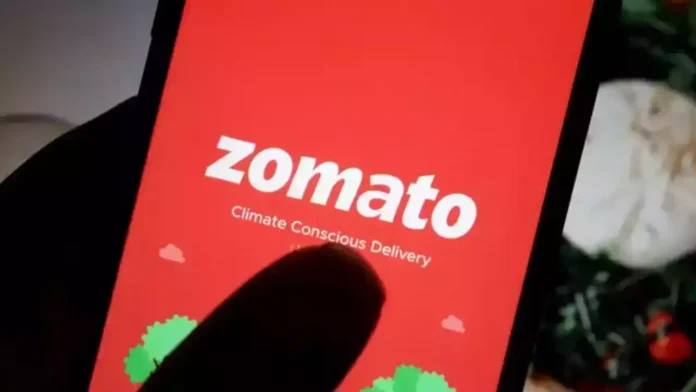Foodtech giant Zomato has been issued a show cause notice of INR 401.7 Crore by the Directorate General of GST Intelligence, Pune Zonal Unit. This notice pertains to unpaid taxes on delivery charges collected from customers, as stated in an exchange filing.
The notice, dated December 26, requests an explanation as to why the purported tax liability of the mentioned amount for the period from October 29, 2019, to March 31, 2022, should not be levied on the company.
“The company strongly believes that it is not liable to pay any tax since the delivery charge is collected by the company on behalf of the delivery partners. Further, in view of the contractual terms and conditions mutually agreed upon, the delivery partners have provided the delivery services to the customers and not the company. This is also supported by opinions from our external legal and tax advisors. The company will be filing an appropriate response to the notice,” Zomato said.
The Gurugram-based company’s shares opened at INR 124.90 apiece during Thursday’s session, 1.7% lower than its previous close at INR 127.05.
Earlier, there were reports indicating that the food delivery giants Zomato and Swiggy reportedly received notices for a combined goods and services tax (GST) amounting to INR 1,000 Cr. Tax authorities now consider the delivery charges collected by these platforms as part of their revenue.
Continue Exploring: Zomato and Swiggy grapple with INR 1,000 Cr GST notices as tax authorities include delivery charges in revenue assessment
It is important to highlight that in January 2022, the Centre added ‘restaurant services’ and cloud kitchens under the purview of Section 9(5) of the CGST Act, 2017, which led to the likes of Swiggy and Zomato paying 5% GST on ‘restaurant services’ they offer.
Nevertheless, it remained uncertain whether delivery services and the associated fees would also be subjected to taxation.
The delivery charges imposed by both Swiggy and Zomato have consistently been a topic of discussion, eliciting controversy from various perspectives.
In 2016, Swiggy initiated the practice of applying food delivery fees. Later, Zomato followed suit by introducing its own delivery charges.
Having set a standard for delivery fees, Zomato then introduced a loyalty programme, now acknowledged as Zomato Gold. Under this programme, customers can circumvent delivery fees by subscribing to a monthly plan, which also offers additional perks.
Likewise, Swiggy introduced Swiggy One, embracing the idea of waiving delivery fees through a subscription model and complementing it with additional benefits.
Zomato and Swiggy handle a daily delivery volume ranging from 1.8 million to 2 million orders nationwide. The introduction of a new Goods and Services Tax (GST) has the potential to disrupt their cash flow.
Meanwhile, both platforms have started imposing a platform fee on orders, with charges ranging from INR 2 to INR 5 per order. Importantly, this fee is applicable universally to all customers, regardless of their subscription to any particular loyalty program.
Zomato announced its second consecutive profitable quarter, with a post-tax profit soaring to INR 36 Crore during the September quarter of the financial year 2023-24 (FY24). This marked an 18-fold increase from the PAT of INR 2 Crore in the previous quarter.
Continue Exploring: Zomato reports remarkable surge in profit, achieving second consecutive profitable quarter in FY24





